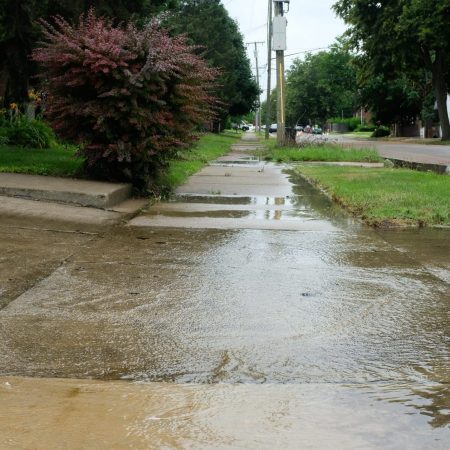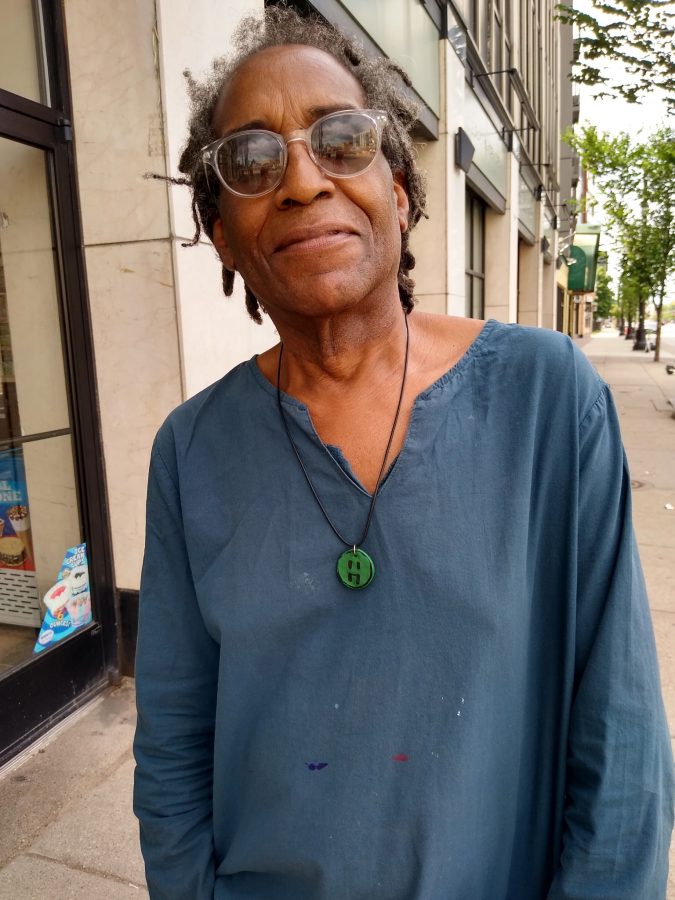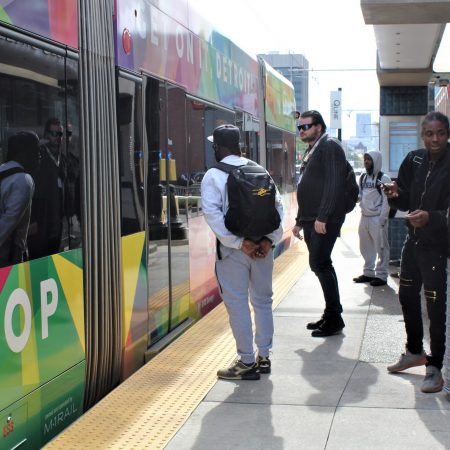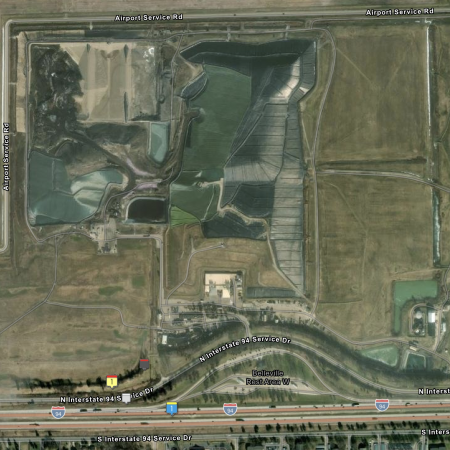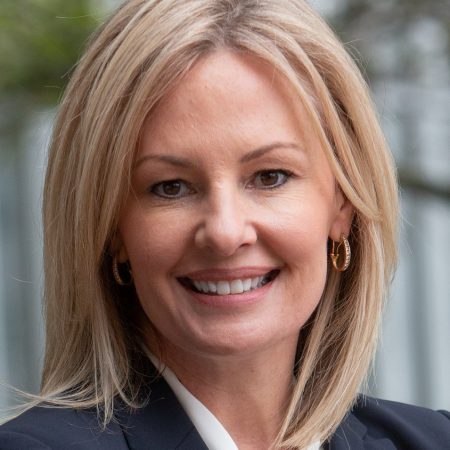Michigan expert says airport security changes require cautious approach
The Trump administration is making changes in security procedures at the nation’s airports. Officials say new technology now allows travelers to pass through checkpoints without having to remove their shoes. And soon, they vow, passengers may be able to bring full bottles of liquid onboard aircraft.
But the new scanners needed to screen travelers are large and expensive. Some experts say the federal government must move cautiously.
University of Michigan Associate Professor Javed Ali was a senior analyst for U.S. Homeland Security in the years following the September 11, 2001 terrorist attacks. He says there were good reasons for checking shoes and liquid containers at airports.
Listen: Michigan expert says airport security changes require cautious approach
The following interview has been edited for clarity and length.
Javed Ali: First there was the 9/11 operation, which was so big and broad and so sophisticated, getting trained pilots to commandeer airplanes and fly them into buildings. But that gap was closed pretty quickly. Then just a couple months later, by December 2001, we saw al-Qaida pivot to a completely different type of tactic using a single operative, Richard Reid, taking a flight bound for Miami from Paris with bombs in his shoes. That’s what led to the rule of having your shoes X-rayed up until very recently.
By 2006, al-Qaida continued to innovate and adapt and think about new ways to attack aviation, even though Osama bin Laden was on the run, in hiding, and the group was under serious pressure. Most of its senior command structure had been killed or captured, but they were still focued on attacking aviation bound for the United States. That’s what led to what was called in 2006 the “liquid bomb plot” against transatlantic planes leaving from Britain.
I was at Homeland Security from 2003–2007 and sort of lived through some of these moments. It was pretty significant and the threat was just off the charts in terms of al-Qaida’s relentless focus on attacking aviation. These international terrorist groups are very adaptive and they’re always looking for opportunities to try to plan or plot the next major attack against the U.S. homeland, even if they’re under significant pressure or their organization has been degraded. That certainly has been the lesson since 9/11. So there’s likely still some type of threat out there against global aviation.
But hopefully with these new measures that either are in place or will potentially be put in place for different types of threats, it will continue to keep the flying public safe. I’m making the assumption that there wasn’t a political dimension to these new measures. It was not just because we are in 2025 and people are tired of having to take their shoes off if they’re not in TSA PreCheck or some other trusted traveler program. But I can’t say that for certain. That’s just an assumption I’m making.
Quinn Klinefelter, WDET News: How would you say the government should balance ease of traveling with ensuring that you’re secure while traveling?
JA: Maybe we’re at a moment where we can pull back on the screening of the shoes because there is a technological solution to that. It’ll be interesting to see if the liquid restriction rule also goes by the wayside. That was al-Qaida’s last major effort to attack the homeland, at least at the scale of the 9/11 attack. They tried to do that afterwards, but nothing at the scale of that August 2006 plot. And that was a close call. And with the al-Qaida folks who were involved in that, in Pakistan and in Britain, that was as serious as it could get.
Luckily, the worst case didn’t happen. But that’s why that rule is still in place for 20 years. The threat of terrorists trying to bring some kind of liquid explosives onto planes, even in small amounts, may still be high, even if the rule gets rescinded or adjusted moving forward.
QK: You’ve discussed terrorist groups. But there’s always concerns over the “lone wolf” operatives or domestic terrorism. Any concerns about lessening current security procedures in regards to the possibility of homegrown terrorism?
JA: That’s a great question. In the post-9/11 era we have not seen what you and I would consider homegrown extremists or pure “lone wolves” or offenders try to conduct attacks against the aviation system here in the United States. It doesn’t mean that people haven’t thought about it, there may have been people who had the idea. But interestingly, in the post-9/11 era, the threat to U.S. aviation up until now has always been directed from groups overseas, first al-Qaida and then ISIS.
QK: As we are talking right now, you have just finished traveling by air and going in airports yourself. What do you think of the process? Was it a drawback for you to go through certain things and wait? Or were you willing and happy to go through that procedure in order to ensure there was as much security as possible?
JA: You might be asking the wrong person this question, because I was a former U.S. government counter-terrorism official. So I knew exactly why these rules and processes are in place, to keep the country safe. And that includes myself, when I was traveling on airplanes in my government years. And now that I’ve been out of government, I travel very routinely as well, including today when I left Detroit Metro Airport and landed here in Washington, D.C. I never see this as an inconvenience, just part of the process we all have to live by. And, again, there are real threats out there that would like nothing more than for all of these rules to go away or create this perception that there are vulnerabilities that could be exploited. I also am in some of the trusted traveler programs too. So that is another thing that any person can apply for. If you’re able to get into those programs it expedites the process at the airports as well.
Trusted, accurate, up-to-date.
WDET strives to make our journalism accessible to everyone. As a public media institution, we maintain our journalistic integrity through independent support from readers like you. If you value WDET as your source of news, music and conversation, please make a gift today.Donate today »
The post Michigan expert says airport security changes require cautious approach appeared first on WDET 101.9 FM.
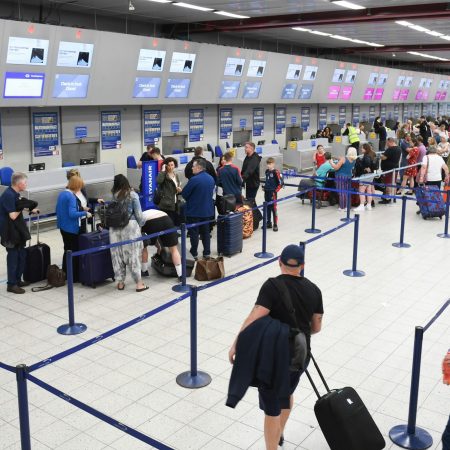
 QK: Obviously whoever becomes mayor, you’d want them to address that kind of issue. I would think. What other issues, if any, do you see as important to the city that should be worked on?
QK: Obviously whoever becomes mayor, you’d want them to address that kind of issue. I would think. What other issues, if any, do you see as important to the city that should be worked on?